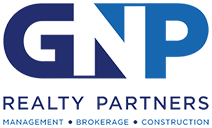Increasing the equity in a commercial real estate property usually requires increasing the net operating income (NOI). This can be done by generating more income or better managing expenses through improved property management. Chicago commercial property owners have many opportunities to improve property use and management. Upgrades that make your property more desirable to tenants allow you to raise rents and effectively increase your NOI. Let’s look at a few ways to maximize this potential.
Want to learn more about Commercial Brokerage?
Request Information | or Call Us at 312-329-8400
Improving the Commercial Property

Adding amenities to make your property more appealing allows you to increase rates and hopefully boost occupancy. Improving amenities doesn’t always have to mean a major overhaul, though. Something as simple as adding a playground in a multifamily property can make your property attractive to more renters. Know your tenants and look for amenities that make their lives easier or add value in their eyes.
In most areas today, adding security measures makes the property more desirable. Adding an automatic gate with a punch code to access the property tells your tenants that you care about safety and helps them feel secure. Additional security features like alarm systems, cameras and shutters not only increase your property value but may also lower your insurance premium.
Net Operating Income and Cap Rates
Understanding NOI and capitalization rates (cap rates) is crucial when trying to increase the equity in your commercial real estate properties. These two fundamental concepts in commercial real estate investing directly influence a property’s value and the returns it generates.
- Net Operating Income – NOI indicates the profitability of a property after operating expenses, excluding mortgage payments and taxes. Increasing NOI by raising rents or reducing costs like utility bills with energy-efficient upgrades can elevate the property’s value.
- Capitalization Rates – The cap rate compares a property’s NOI to its market value, indicating the potential return on investment. A lower cap rate often suggests lower risk, while a higher cap rate may indicate higher risk or potential return. Understanding cap rates helps when comparing investment properties.
You can effectively increase your commercial property equity by improving NOI and considering cap rates in buying or selling decisions. Keep in mind that market conditions and property specifics can influence these figures. In brief, mastering NOI and cap rates can guide you to make informed decisions in commercial real estate, leading to increased equity.
Adding Value by Increasing Revenue Streams
Expanding your revenue streams can significantly increase the value of your commercial real estate property and its equity. Here’s how.
- Increasing Rental Income – Raising rent is a straightforward method to enhance revenue. But it’s crucial to ensure that the increase aligns with the current market rates and the value you provide tenants to avoid vacancies.
- Adding Ancillary Income – Look for ways to introduce additional revenue sources that complement your property. This could include installing vending machines, rentingadvertising space or providing paid parking facilities. Such ancillary income can supplement your rental income, increasing the overall revenue.
- Utilizing Vacant Spaces – If your property has underutilized or vacant spaces, consider transforming them into rentable units. For example, an unused basement could be converted into storage units for an additional rental fee.
- Offering Premium Services – For certain types of commercial properties, offering premium services or amenities can generate extra income. This could involve providing enhanced security services, premium maintenance services, or access to high-end communal facilities.
Adding Value by Decreasing Expenses
While increasing revenue is important, equally crucial is the effective management of expenses. Reducing costs without compromising quality can boost your property’s NOI, thereby increasing its value.
- Energy Efficiency – Implementing energy-efficient upgrades, such as LED lighting or high-efficiency HVAC systems, can significantly reduce utility costs. Additionally, these upgrades can make your property more attractive to environmentally-conscious tenants.
- Preventive Maintenance – Regular preventative maintenance can help avoid costly repairs in the future. Keeping systems in good working condition can extend their lifespan and reduce the frequency of expensive emergency repairs.
- Negotiating Service Contracts – Negotiate contracts for services such as waste removal, landscaping or pest control. You can often reduce these recurring costs by comparing providers and renegotiating terms regularly.
- Property Tax Appeals – If you believe your property’s assessed value is too high, consider appealing the property tax assessment. A successful appeal could result in substantial savings.
Value-Add Risks
Embarking on a value-add strategy for your property can present certain risks, from overcapitalization to unexpected complexities. However, working with a property management company can help mitigate these risks and identify the most suitable options for your property.
- Overcapitalization – One risk is overcapitalization, where the cost of improvements exceeds the value they add to the property. With their understanding of the market and what tenants want, property management companies can provide valuable insights into which improvements are likely to provide a good return on investment.
- Regulatory Compliance – Compliance with local regulations and codes can be challenging. A property management company experienced in dealing with local authorities and knowledgeable about local and federal regulations can ensure that any improvements meet all relevant standards and codes.
- Unexpected Complexities – Renovations can uncover unexpected issues, leading to higher costs. Using their network of reliable contractors, property managers can help anticipate potential problems and manage them effectively if they occur.
- Tenant Disruptions – Improvements can disrupt tenants, possibly leading to dissatisfaction or vacancies. A property management company can plan and oversee the work to minimize disruptions, communicate effectively with tenants about what to expect and manage any issues that arise.
Best Use
If the neighborhood surrounding a property has changed since the property was purchased or built, a highest and best-use analysis may be in order. A change in property use can have a big impact on property value and rental rates.
This is an area where an accredited property manager can help you. Determining the highest and best use is more complicated than you might think and requires reliable data on the surrounding neighborhood, rental rates, property use, etc. The best use of your property might require:
- Changing the present use
- Zoning changes
- Razing the property and rebuilding
While you may not want to do any of these things, you should know the potential of your property before making decisions. When it comes to real estate management, Chicago property owners should always consider all options.
Increasing Equity through Better Property Management
Increasing NOI and managing expenses will increase your property value and equity. Poor management has the opposite effect and can cause your property value to fall quickly.
A well-managed property will have a higher occupancy rate and will retain tenants. Rents are at their optimum, and expenses are well-managed. If you cannot manage your property to obtain maximum rents and occupancy, it is worth looking into hiring an accredited property manager. Many Chicago commercial real estate management companies that specialize in this type of work. However, the GNP Realty Partners management team has the first-hand experience you need to make the most of your property through real estate management. Chicago-based GNP is an Accredited Management Organization® (AMO®)–one of less than 550 elite firms nationwide to hold this prestigious accreditation. We would be happy to discuss your particular property or your management needs with you. Give us a call at 312-329-8400 or contact us today. Let us show you the possibilities.







